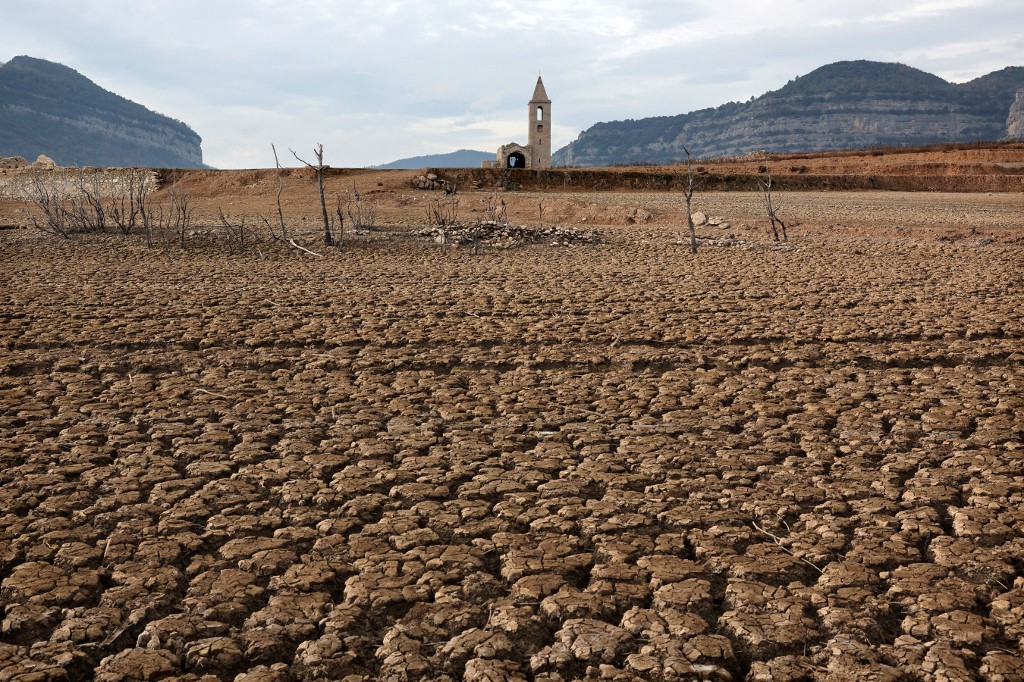World's record-breaking temperature streak extends through April
Each month since June 2023 has ranked as the planet's hottest on record, compared with the corresponding month in previous years, the Copernicus Climate Change Service (C3S) said in a monthly bulletin.
Change Size
 This photograph taken on January 15, 2024 shows the dry soil next to the low water-level reservoir of Sau with in background Sant Roma de Sau church, in the province of Girona in Catalonia. Catalonia struggles with historic drought for three years, with some residents already experiencing water restrictions in their daily life. (AFP/Lluis Gene)
This photograph taken on January 15, 2024 shows the dry soil next to the low water-level reservoir of Sau with in background Sant Roma de Sau church, in the province of Girona in Catalonia. Catalonia struggles with historic drought for three years, with some residents already experiencing water restrictions in their daily life. (AFP/Lluis Gene)
T
he world just experienced its hottest April on record, extending an 11-month streak in which every month set a temperature record, the European Union's climate change monitoring service said on Wednesday.
Each month since June 2023 has ranked as the planet's hottest on record, compared with the corresponding month in previous years, the Copernicus Climate Change Service (C3S) said in a monthly bulletin.
Including April, the world's average temperature was the highest on record for a 12-month period - 1.61 degrees Celsius above the average in the 1850-1900 pre-industrial period.
Some of the extremes - including months of record breaking sea surface temperatures - have led scientists to investigate whether human activity has now triggered a tipping point in the climate system.
"I think many scientists have asked the question whether there could be a shift in the climate system," said Julien Nicolas, C3S Senior Climate Scientist.
Greenhouse gas emissions from burning fossil fuels are the main cause of climate change. In recent months, the natural El Nino phenomenon, which warms the surface waters in the eastern Pacific Ocean, has also raised temperatures.
Scientists have already confirmed that climate change caused some specific weather extremes in April, including a heatwave in the Sahel linked to potentially thousands of deaths.
Hayley Fowler, a climate scientist at Newcastle University, said the data showed the world is perilously close to breaching the 2015 Paris Agreement's goal to cap global warming at 1.5 degrees Celsius.
"At what point do we declare we've lost the battle to keep temperatures below 1.5? My personal opinion is we've already lost that battle, and we really need to think very seriously about keeping below 2C and reducing our emissions as fast as we can," she said.
Countries agreed the 1.5C goal at a UN climate summit in 2015. It is the level scientists say would avoid the most disastrous consequences of warming, like fatal heat, flooding and the irreversible loss of ecosystems.
Technically, the 1.5C target has not yet been missed, as it refers to an average global temperature over decades. But some scientists have said the goal can no longer realistically be met, and have urged governments to cut CO2 emissions faster to limit overshoot of the target.
C3S' dataset goes back to 1940, which the scientists cross-checked with other data to confirm that last month was the hottest April since the pre-industrial period.









